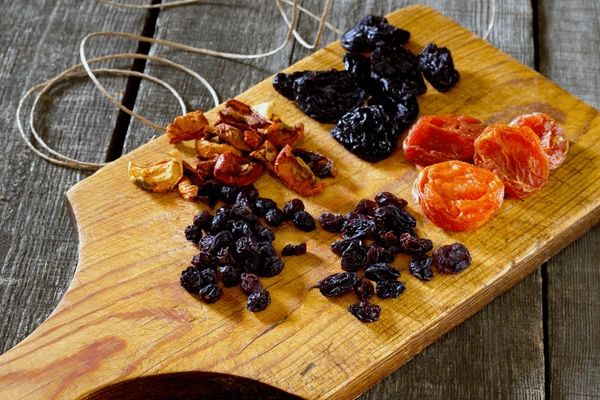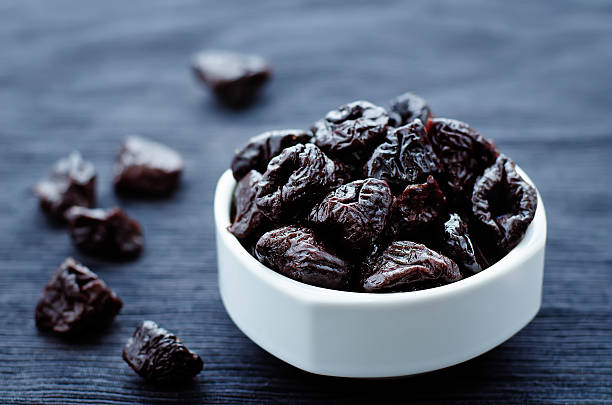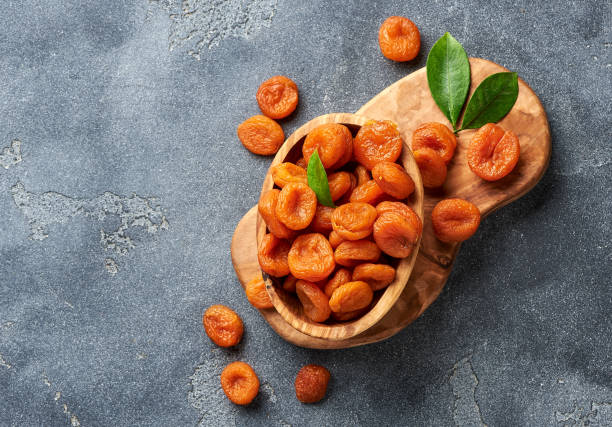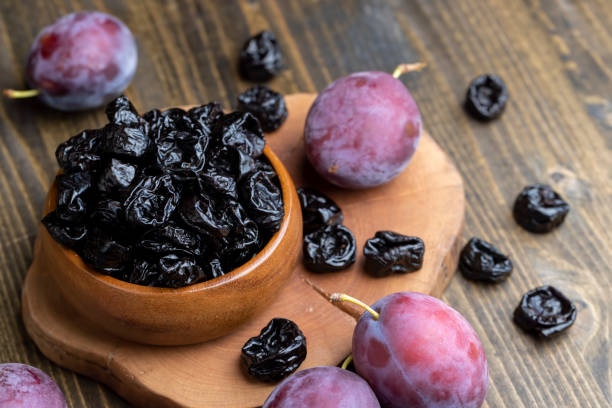Vitamin B12 is one of the most essential nutrients required for proper body functioning, yet it is commonly deficient in many people, especially vegetarians. Understanding the benefits of consuming vitamin B12 can help you maintain better energy levels, brain health, immunity, and overall well-being.
Among natural sources, vitamin B12-rich dried fruits stand out due to their long shelf life, high nutritional density, and convenience. In this article, we explore the benefits of consuming vitamin B12, particularly through dried fruits like raisins, prunes, and dried apricots.
- What Is Vitamin B12 and Why Is It Important?
- Benefits of Consuming Vitamin B12 Through Dried Fruits
- Major Benefits of Consuming Vitamin B12-Rich Dried Fruits:
- Popular Vitamin B12-Supporting Dried Fruits
- Are Dried Fruits Low-Calorie?
- Who Should Be Careful?
- How to Include Dried Fruits in Your Daily Diet
- FAQs:
- Conclusion:
What Is Vitamin B12 and Why Is It Important?
Dried fruits are rich in vitamin B12 and minerals like iron, calcium, magnesium, phosphorus, potassium, and sodium, and contain about 250 kcal and 1.5–5 g of protein per 100 g. They have a long shelf life and do not require storage in a cold place. This is one of their main advantages, and therefore they are a convenient alternative to fresh fruits. So, let’s know about the benefits of consuming vitamin B12-rich dry fruits.
Vitamin B12 (cobalamin) is a water-soluble vitamin that plays a crucial role in:
Red blood cell formation
DNA synthesis
Nerve function
Brain health
Energy metabolism
A deficiency in vitamin B12 can lead to fatigue, weakness, anemia, poor memory, and nerve damage.
Benefits of Consuming Vitamin B12 Through Dried Fruits
Dried fruits are nutrient-dense foods that contain not only vitamin B12 in trace amounts but also essential minerals and antioxidants that support B12 absorption and utilization in the body.
Nutritional Profile of Dried Fruits (Per 100g)
Calories: ~240–250 kcal
Protein: 1.5–5 g
Rich in iron, calcium, magnesium, potassium, phosphorus
High fiber and natural sugars
One of the biggest benefits of consuming vitamin B12 through dried fruits is their convenience—they do not require refrigeration and can be consumed anytime.
Major Benefits of Consuming Vitamin B12-Rich Dried Fruits:
Dried fruits can safely be called superfoods. They have a high nutritional value and contain a whole range of useful, and sometimes irreplaceable substances for the body; finally, they are simply very tasty.
There are many varieties of dried fruits. The principle is simple: almost any fruit and berries can turn into them, it all depends on the specific country/region. We will consider the three most popular types in our area.
1. Rich in Essential Nutrients
Dried fruits such as dried apricots, raisins, and prunes contain:
Vitamin B-complex (supports vitamin B12 function)
Vitamin A and C
Dietary fiber
Iron and potassium
These nutrients work together to enhance the overall benefits of consuming vitamin B12.
2. Boosts Energy Levels Naturally
Carbohydrates present in dried fruits act as a quick energy source. When combined with vitamin B12, they help convert food into usable energy.
This makes vitamin B12-rich dried fruits an excellent:
Pre-workout snack
Midday energy booster
Travel-friendly nutrition option
3. Supports Brain and Nervous System Health
One of the most important benefits of consuming vitamin B12 is its role in nerve protection and brain function. Regular intake helps:
Improve memory and focus
Reduce stress and fatigue
Prevent nerve damage
The presence of magnesium and B vitamins in dried fruits further strengthens nervous system health.
4. Improves Immunity
Vitamin B12 supports the production of white blood cells. Dried fruits also contain copper, iron, and antioxidants that:
Enhance immune response
Fight infections
Reduce inflammation
This makes immune support one of the strongest benefits of consuming vitamin B12-rich dried fruits.
5. Promotes Healthy Digestion
Fiber found in dried fruits:
Improves gut health
Prevents constipation
Supports nutrient absorption
A healthy digestive system ensures better absorption of vitamin B12, maximizing its benefits.
6. Supports Heart Health
Potassium and magnesium in dried fruits help regulate blood pressure, while vitamin B12 helps reduce homocysteine levels, lowering the risk of heart disease.
Thus, cardiovascular protection is another major benefit of consuming vitamin B12.
7. Supports Red Blood Cell Formation
Iron and vitamin B12 together help prevent anemia by improving hemoglobin production. This leads to:
Better oxygen transport
Reduced weakness
Improved endurance
Popular Vitamin B12-Supporting Dried Fruits
Dried Apricots:
High in potassium and iron
Support immunity and digestion
Raisins
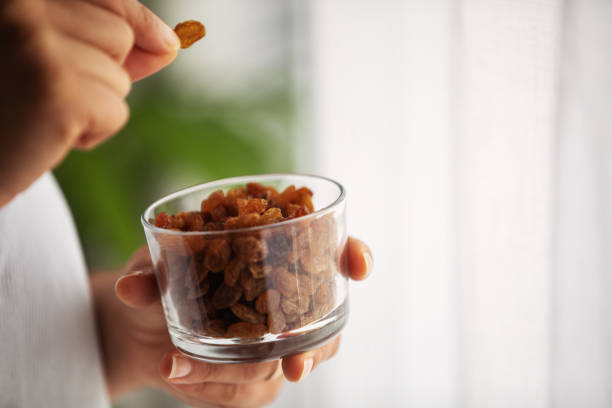
Improve energy and gut health
Support iron absorption
Prunes
Excellent for digestion
Rich in antioxidants
Are Dried Fruits Low-Calorie?
While dried fruits are nutrient-dense, they are not low-calorie.
Average calories: ~240 kcal per 100 g
Recommended intake: 30–100 g per day
Moderation is key to enjoying the benefits of consuming vitamin B12 without unwanted weight gain.
Who Should Be Careful?
People prone to weight gain
Individuals with diabetes
Those allergic to specific fruits
Always consult a nutritionist if you have medical conditions.
How to Include Dried Fruits in Your Daily Diet
Add to breakfast cereals or oats
Eat as a mid-meal snack
Mix with nuts for a trail mix
Blend into smoothies
FAQs:
Q. What are the main benefits of consuming vitamin B12?
A. The benefits of consuming vitamin B12 include improved energy, better brain function, healthy nerves, strong immunity, and prevention of anemia.
Q. Do dried fruits really contain vitamin B12?
A. Dried fruits contain small amounts and support vitamin B12 absorption due to their rich mineral and vitamin profile.
Q. Can vegetarians get vitamin B12 from dried fruits?
A. Dried fruits help support B12 intake, but should be combined with fortified foods or supplements for adequate levels.
Q. How much dried fruit should I eat daily?
A. The ideal amount is 30–100 grams per day, depending on activity level and health goals.
Q. Are dried fruits good for immunity?
A. Yes, one of the key benefits of consuming vitamin B12-rich dried fruits is improved immune function due to antioxidants and minerals.
Q. Can dried fruits help with fatigue?
A. Absolutely. Natural sugars, iron, and vitamin B12 support energy production and reduce tiredness.
Conclusion:
The benefits of consuming vitamin B12 go far beyond energy and immunity. When combined with nutrient-dense dried fruits, vitamin B12 contributes to better digestion, brain health, heart function, and overall vitality.
Including vitamin B12-supporting dried fruits in your daily diet is a simple, natural, and effective way to enhance long-term health—just remember to consume them in moderation.
